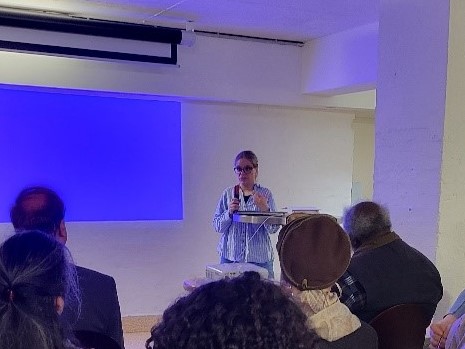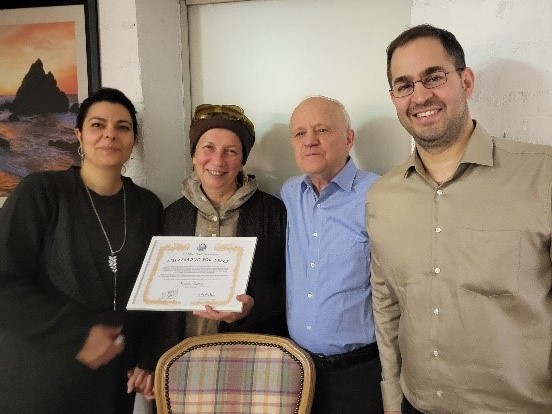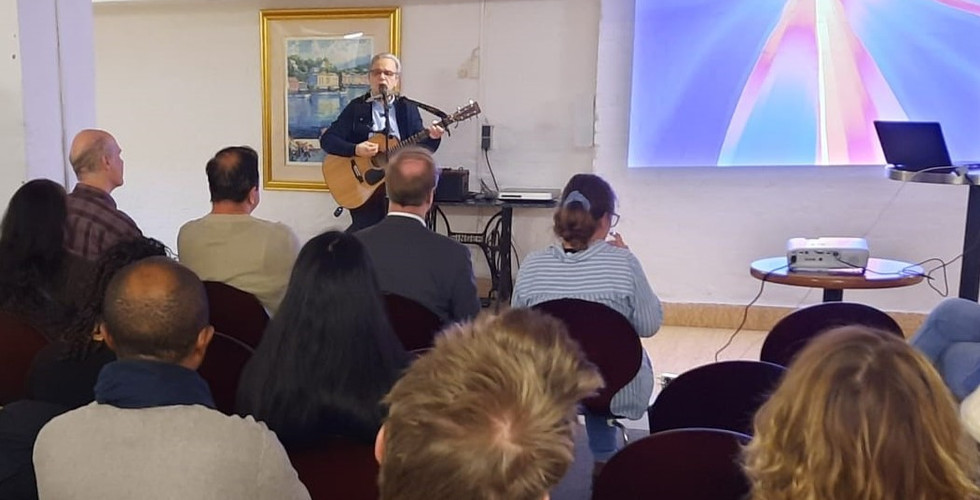Berlin Forum Addresses the Problem of Mental Illness
- khwang562
- Oct 11, 2025
- 2 min read
Updated: Oct 23, 2025
Berlin, Germany – As the issue of mental illness is increasingly impacting families and societies around the world, UPF-Berlin organized a discussion on this topic on October 11, 2025, inviting two speakers to share their experiences with this phenomenon.
The program coincided with the UN-designated Mental Health Day, set as October 10 in 1992, to shed light on the growing prevalence of mental illness, and to raise understanding for those affected.
Mental illnesses have existed for thousands of years, and they often have been "treated" in brutal ways. Through this discussion, participants strove to understand the reality more deeply, to enable them to deal more wisely and lovingly with affected individuals and families.
The first speaker, a psychological psychotherapist from Hesse, gave a broad overview of mental illnesses, their symptoms, and treatment approaches, as well as suggestions with "dos and don'ts" for dealing with sick relatives or acquaintances. Using a table to explain the Vulnerability-Stress Model, she illustrated the fact that, although genetic and other factors play a part in many cases, anyone can develop a mental disorder.
The second speaker described her long painful experience with destructive thinking and behavior, which psychiatry could temporarily alleviate, but not cure. It was only when she discovered the concept of self-worth that she found her way to her soul, her intrinsic value, and healing. Although she still occasionally faces challenges, she manages to lead an emotionally balanced life through spiritual practices. She emphasized that she is grateful to the psychiatric staff who worked with her, and considers their work important, even though she has found her own path in religion.
An extraordinarily lively question and answer time showed the attendees’ great interest in a topic that affects almost everyone nowadays; nearly everyone seems to know someone in their circle of friends and acquaintances with a mental disorder, from burnout, depression and eating disorders to psychosis. In the debate, the topic of electroconvulsive shocks was addressed, but it was concluded that this method is rarely used today, only in the most severe cases, and its side effects are known and taken into account.
UPF representatives emphasized the importance of taking care of each other. Peace and love mean taking time, listening, showing interest, doing things together, preventing loneliness, and healing emotional wounds.
Finally, the women's group leader of the Berlin Zivilisation Weisheit Wohltätigkeit Aufschwung (Civilization Wisdom Charity Prosperity), a Sufi Islam group, received the Peace Ambassador Award. Following the discussion, live music and a richly set coffee table offered a relaxed and open atmosphere for friendly fellowship.
By Gudrun Hassinen, UPF-Berlin October 11, 2025

















